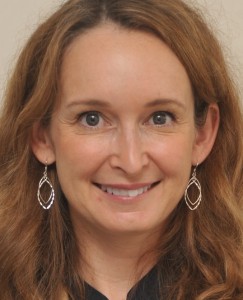 It seems obvious that child marriage—marriage before 18 years of age—would be bad for girls’ health. It risks injury and death due to early pregnancy and abuse, and usually means girls stop going to school.
It seems obvious that child marriage—marriage before 18 years of age—would be bad for girls’ health. It risks injury and death due to early pregnancy and abuse, and usually means girls stop going to school.
But the link to climate change is less conspicuous. A new Human Rights Watch report, focused on Bangladesh, which has one of the highest rates of child marriage in the world (a full 30% of females in this country are married before 15), sheds light on the role of climate change. Having never thought of adolescent health this way, I find the tripartite fascinating.
First, the unusual context of Bangladesh: The issue of child marriage—or “early marriage” as it’s euphemism-ly known—received international visibility last year around The Girl Summit in London. At the time Bangladesh’s prime minister promised to take measures to reduce and eventually stop child marriage in the country. She committed to develop a national plan of action before 2015, end marriage for girls under age 15 by 2021, and end all child marriage by 2041.
Child marriage devastates girls—many of whom do not consent to the arrangement and are subjected to abuse and isolation. In Bangladesh, marital rape is not a crime. Marrying too young is—but the fine amounts to just $13 and is rarely imposed. Indeed, 65% of girls here are married before 18 so it can hardly be called criminal.
Just a couple of months after the summit, Bangladesh proposed a new solution—to lower the legal age of marriage. A government body was proposing a reduction from 18 to 16 years for girls and from 21 to 18 years for boys to legally marry. It was, according to my local colleagues at the time, a way for the government of Bangladesh to show a reduction in rates of child marriages when they next gathered with international leaders to discuss progress.
This understandably astonished and exasperated many people. That a government—whose leader was weeks earlier pictured on the frontpage of newspapers at said Summit being feted by David Cameron—would manipulate the situation in such a way has caused deep concerns.
Now, the Human Rights Watch analysis raises more concerns with the child marriage situation in Bangladesh, tracing much broader drivers of the problem—including climate change.
Poverty exacerbated by natural disasters and climate change creates insecurity in families, which can cause them to have their young girls married, reveals the report, which was based on more than 100 interviews in the country.
“Bangladesh’s extreme vulnerability to natural disasters, exacerbated by climate change, and combined with its large population, means that for many poor families their livelihoods, homes, and land are under threat from flooding, river erosion, cyclones and other disasters,” says the report. Made insecure by these circumstances, which affects tens of millions, families are under pressure to arrange marriages quickly for their young daughters.
That move may be seen as a way to provide more stability for the girl when under the domain of another family, or it may reduce pressure on the current family to feed and care for its other members.
Either way, the new report paints a bigger picture of the child marriage problem that will require very broad governmental action.
In a press statement Human Rights Watch applauds the government of Bangladesh for its stated commitments at the high-profile Girl Summit, and strongly discourages the legal age lowering. When it comes to climate change, the report recommends that government agencies providing assistance to families in poverty or affected by disasters should be more directly involved in preventing child marriage
Child marriage is a big problem in need of a big solution. Is Bangladesh—widely celebrated as a development success, especially when it comes to maternal and child health—up to the task? Or will the (inevitable) climate change angle provide convenient cover and produce inaction?
Jocalyn Clark (@jocalynclark) is executive editor at icddr,b, a global health research organisation in Dhaka, Bangladesh. She was a senior editor at PLOS Medicine and assistant editor at The BMJ.
Competing interests: The author has no further interests to declare.
